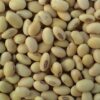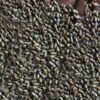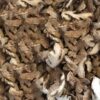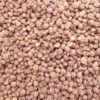Sesame seeds are tiny, oil-rich seeds that have been used in many cultures for thousands of years. These versatile little seeds are not only delicious, but also packed with nutrients, making them a great addition to any diet. In this blog post, we’ll explore the history, benefits, and culinary uses of sesame seeds.
History of Sesame Seeds Sesame seeds are believed to have originated in Africa and were later introduced to India and China, where they became an important crop. In ancient Egypt, sesame seeds were used as a medicine and also as a symbol of immortality. In fact, some Egyptian tombs contained bowls of sesame seeds as offerings to the gods.
In the Middle Ages, sesame seeds were used in Europe as a condiment and were also believed to have medicinal properties. Today, sesame seeds are grown all over the world and are an important ingredient in many different cuisines.
Nutritional Benefits of Sesame Seeds Sesame seeds are a rich source of several important nutrients. They are high in protein, healthy fats, and fiber, which can help you feel full and satisfied. They are also a good source of minerals like calcium, iron, magnesium, and zinc, as well as vitamins B1 and B6.
One of the unique nutrients found in sesame seeds is lignans, which have been shown to have anti-cancer properties. Sesame seeds are also a good source of antioxidants, which can help protect your cells from damage and reduce inflammation in the body.
Culinary Uses of Sesame Seeds Sesame seeds can be used in many different ways in the kitchen. They are a popular ingredient in Middle Eastern and Asian cuisine, where they are often used as a garnish or as a key ingredient in sauces and dips.
In addition to their culinary uses, sesame seeds can also be used to make tahini, a paste made from ground sesame seeds that is a key ingredient in hummus. Sesame oil, which is made from toasted sesame seeds, is a popular cooking oil that has a rich, nutty flavor.
Sesame seeds can also be used to add a crunchy texture to baked goods like bread and crackers. They can be sprinkled on top of salads or roasted vegetables for added flavor and nutrition.
Conclusion Sesame seeds are a versatile ingredient that has been used in many cultures for thousands of years. They are a rich source of important nutrients, including protein, healthy fats, and fiber, as well as minerals and vitamins. With their nutty flavor and crunchy texture, sesame seeds can be used in a variety of dishes and are a delicious and nutritious addition to any diet.






